Measuring Recent Urban Expansion
How Do We Measure Urban Expansion and Why It Matters
RSVP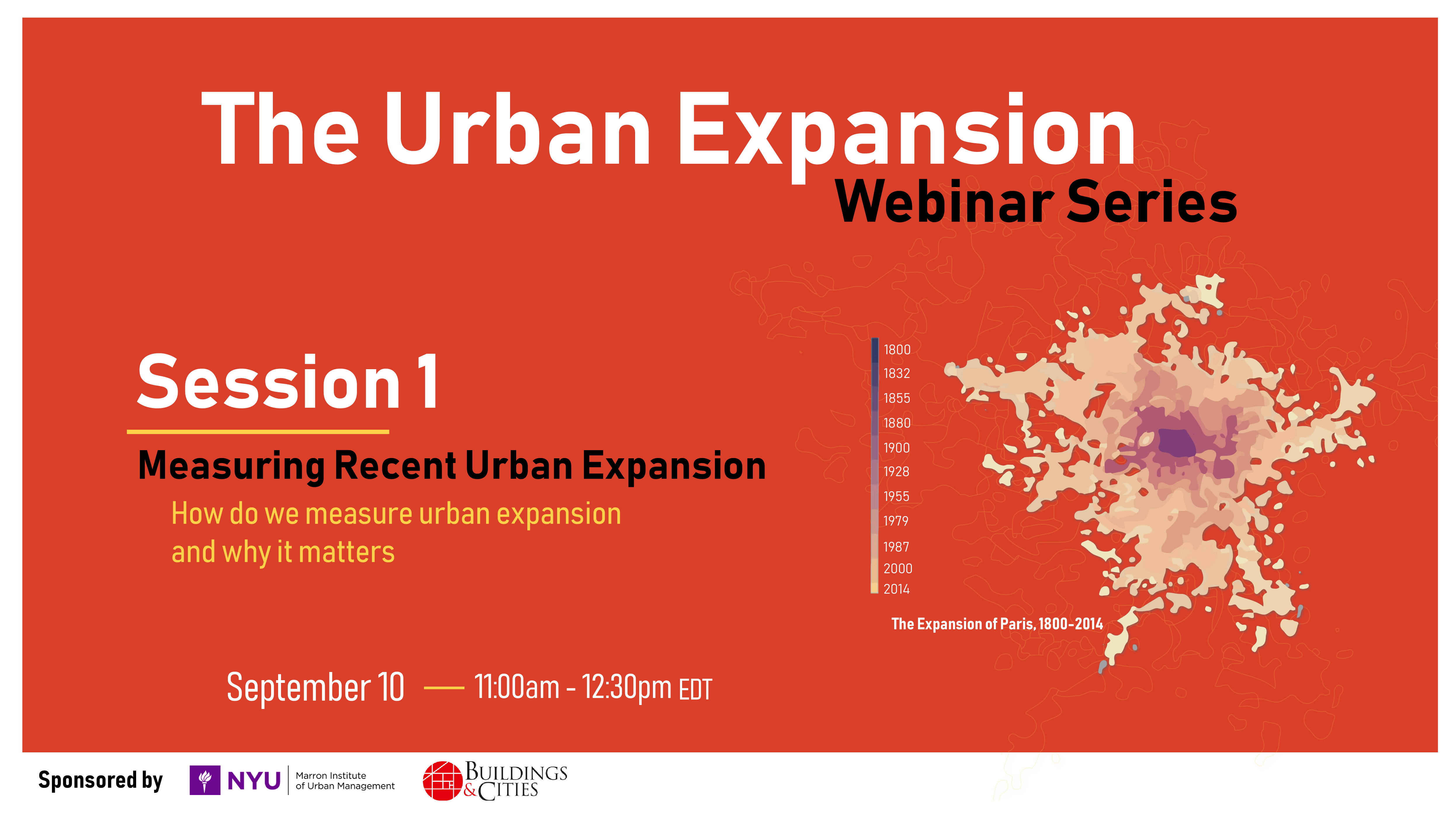
Goal 11 of the UN Sustainable Development Goals is to “Make cities and human settlements inclusive, safe, resilient and sustainable.” One indicator, “Ratio of Land Consumption Rate to Population Growth Rate,” calls for measuring the rate of urban expansion and comparing it to the rate of population growth, with a view to slowing and possibly reversing urban-density decline, a key strategy for mitigating climate change.
A webinar will focus on three available methods for measuring this indicator, which combine census data and satellite-imagery analysis: contiguous built-up pixels, contiguous population pixels, and contiguous nighttime-light pixels. Three teams that use these methods will discuss their relative merits and progress towards the goal.
The webinar will be co-hosted by the Urban Expansion program and the journal, Buildings and Cities, on September 10 from 11:00 a.m. to 12:30 p.m. EDT.
Speakers
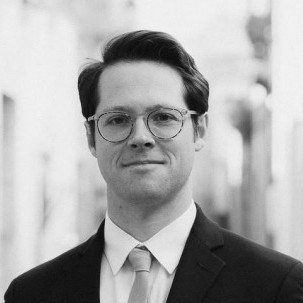
Patrick Lamson-Hall is an urban planner and a Fellow in the Urban Expansion program of the NYU Marron Institute. He has contributed to the development of the Atlas of Urban Expansion: 2016 Edition, a groundbreaking and original study of the dynamics of global urban growth. He manages the India Urban Expansion Observatory, a 30-person research facility located in Mumbai, India. He was the New York-based coordinator of the Ethiopia Urban Expansion Initiative, a project to implement long-term spatial plans in 16 Ethiopian cities and he coordinated the Climate Smart Cities: Grenada program, a collaboration with the Green Climate Fund.
Mr. Lamson-Hall holds a Master’s Degree in Urban Planning from the NYU Wagner School of Public Service. In addition to his work at NYU, he has contributed to the crafting of the sustainable development goals as an expert urban planner, has collaborated with UN-Habitat on the writing of a methodology for the assessment of public open space, and has shaped new strategies for the evaluation of cities using high-resolution satellite imagery. His other research interests include alternative transportation, special economic zones, and the measurement of urban density.
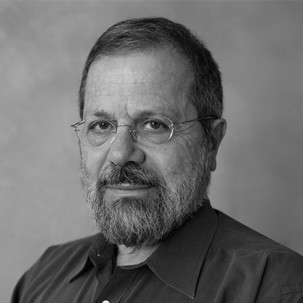
Professor of City Planning / NYU Marron Institute
Shlomo (Solly) Angel is a Professor of City Planning at the Marron Institute where he leads the NYU Urban Expansion Program. He is an international expert on housing and urban development policy, having written extensively on the subject, advised the United Nations, the World Bank, and the Inter-American Development Bank (IDB), and implemented projects on the ground. He currently focuses on documenting urban expansion and densification in a global sample of cities, as well as on advising rapidly growing cities on how to prepare adequate room for their inevitable expansion while making adequate room for the densification of their existing footprints as well.
In 1973, Angel started a program in Human Settlements Planning and Development at the Asian Institute of Technology in Bangkok. He taught at the Institute from 1973 to 1983, while researching housing and urban development in the cities of East, South, and Southeast Asia. He co-edited Land for Housing the Poor in 1982. From the mid-80s to mid-90s, he worked as a housing and urban development consultant to UN-Habitat, the Asian Development Bank, and the Government of Thailand. In 2000, he published Housing Policy Matters, a comparative study of housing conditions and policies in more than fifty countries around the world. From 2000 to 2010 he prepared housing sector assessments of 11 Latin America and Caribbean countries for the IDB and the World Bank. Since 2005, he has been documenting global urban expansion, resulting in the publication of The Dynamics of Global Urban Expansion in 2005, the Atlas of Urban Expansion in 2012 and 2016, and Planet of Citiesin 2012.
Angel earned a bachelor’s degree in architecture and a doctorate in city and regional planning at the University of California, Berkeley.
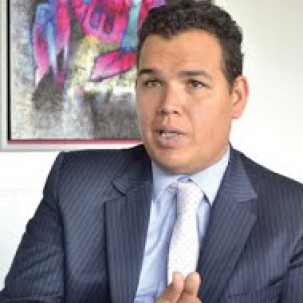
Juan F. Vargas is Professor of Economics at Universidad del Rosario, Colombia. He holds a PhD in Economics from Royal Holloway, University of London (2007) and has held visiting positions at the University of Bergamo, (2015), the Inter-American Development Bank (2013), the Institute of Development Studies (2011), UCLA (2007-2008) and Harvard University (2005-2007). His main interests are political economy of development, focusing particularly on the causes and consequences of violent armed conflict, and the interplay between political and economic institutions. He has worked with international institutions like the World Bank and USAID in evaluating large government security policies in Colombia.
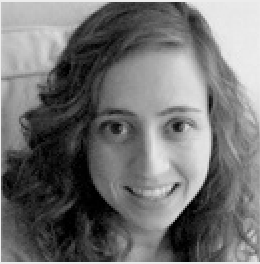
Annemarie Schneider (Ph.D., Boston University Geography and Environment) is an Associate Professor at the Nelson Institute’s Center for Sustainability and the Global Environment, and an affiliate faculty member in the Department of Geography and the Center for Demography and Ecology (CDE). Her research is focused at SAGE, while her teaching spans multiple schools and departments at the University of Wisconsin-Madison.
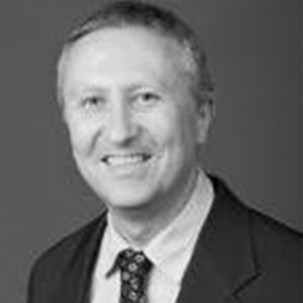
Gilles Duranton is Professor of Real Estate and holds the Dean’s Chair in Real Estate. He joined Wharton in 2012 after holding academic positions at the University of Toronto and the London School of Economics. A graduate from HEC Paris and Sorbonne University, he obtained his PhD in economics jointly from the London School of Economics and the Ecole des Hautes Etudes en Sciences Sociales in Paris.His research focuses on urban and transportation issues. His work is concerned with land use, urban growth and the estimation of the costs and benefits of cities and clusters. He is also interested in the effects of transportation infrastructure on urban development and the evaluation of local policies.
Please fill out the information below to receive our e-newsletter(s).
*Indicates required.
